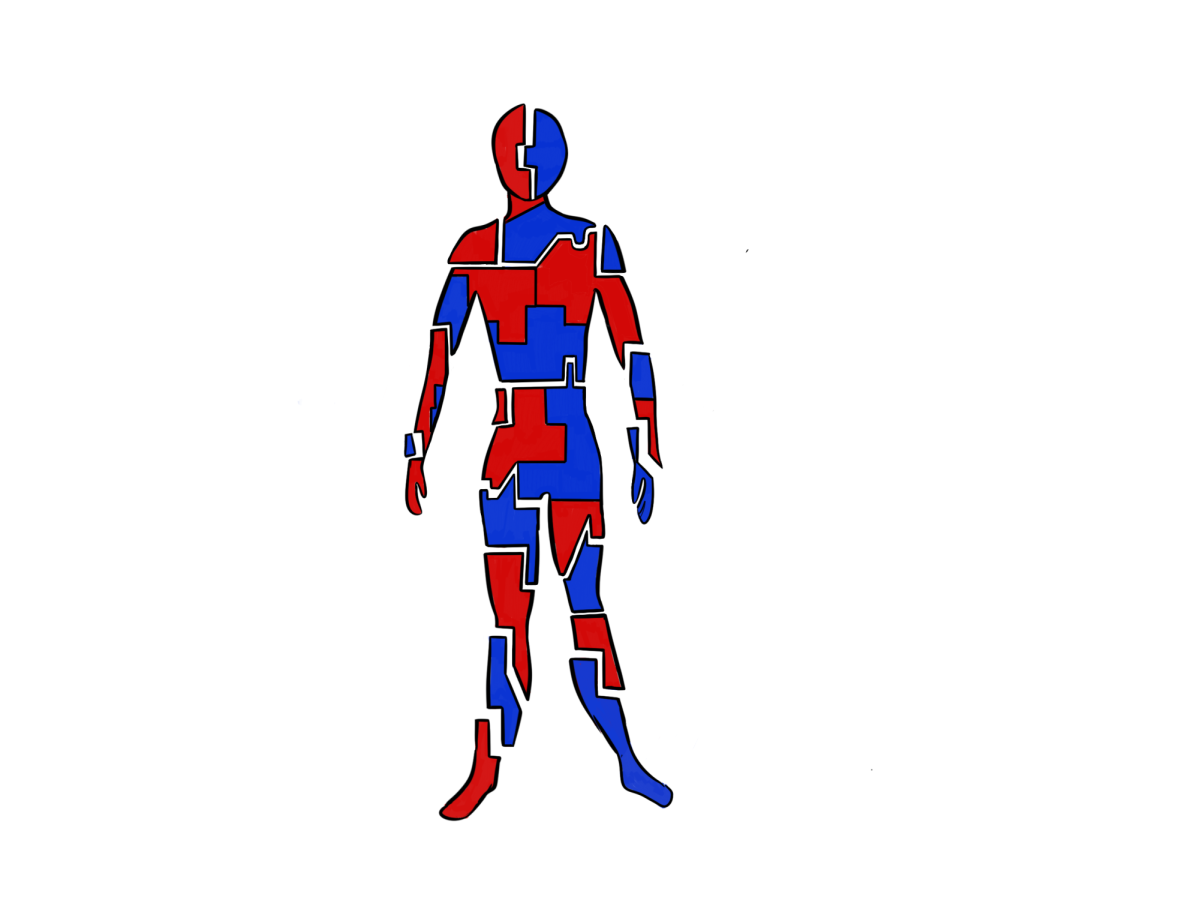On November 20th — just like any other normal day on campus — countless SHP students mindlessly navigated to Bessy.io to check their current grades. However, Bessy’s adorable, grade-possessing cow that typically pops up within milliseconds of typing in the website name was replaced by a screen with a red message — Bessy had been blocked.
Since SchoologyPlus was blocked last year, Bessy.io had been the source for students to closely monitor their grades. Particularly with finals season around the corner, students utilized Bessy to calculate their potential grades — predicting grades on assignments to see how this score would impact their overall grade. Beyond this feature, Bessy depicts small graphs to track your grade progress throughout the year, gives exact grade percentages in courses where teachers only publish letter grades, and provides precise time stamps of when your grade was last updated. For many, this was a source of comfort — a feeling of having some power, control, or knowledge of your standing in a class. For others, this provided immense stress — causing students to frantically and constantly monitor their grades.
The demise of Bessy on campus and the upcoming entry into finals season have raised the following questions: Are Bessy and similar grade-monitoring applications responsible for excessive student stress? Do students gamify school, or do they really care about learning? How can we move forward with the answers to these preceding questions?
Let’s begin with an evaluation of the general stress of students at SHP and the factors responsible for these worries. Silicon Valley is a region filled with successful entrepreneurs, tech giants, and wealthy heirs, and for the 8th consecutive year, Atherton remains the #1 most expensive ZIP code in the United States — according to SFGate. The region is home to some of the country’s best public schools, including Gunn High School and Palo Alto High School, as well as prestigious universities such as Stanford and UC Berkeley. The competition in the region is overt and overwhelming; by early high school, many students have created apps with a one-on-one mentor, founded a nonprofit or publication, or received awards at every Model United Nations conference within reach. Privilege certainly comes into play: in a school where many families are among the most privileged in the United States, not having tutors in the standardized testing process can be seen as “abnormal,” just as going through the college process without a private counselor can be seen as “odd.”
Most notably, succeeding in the college admissions process seems to be the main goal of a high school education. In the last five years, applications to top-tier colleges have increased by one-third or more, but the available acceptances have remained constant (American Enterprise Institute). In Silicon Valley — a pool of high-achieving high school students — it is no longer “enough” to get straight A’s and be actively involved in your school to be accepted into a top-ranked college. Today’s students feel they need to be the CEOs of their own startups, write their own books, or join a research project at a prestigious institution. Having an unblemished GPA begins to feel like a bare minimum, as if you don’t even have a shot at achieving your ambitious goals without the grades you want. When such high stakes are placed on such minute details, it places a lot of stress on a student.
Unfortunately, the “excessive pressure to excel” is a massive barrier to adolescent wellness. Moreover, other than the college application process, there are multiple factors that cause students to stress excessively about their grades. Competition between classmates has grown massively in high school classes, placing pressure on relationships and the overall community. Additionally, as mentioned above, constant access to grades for both students and parents makes it nearly impossible to experience a reprieve from the overwhelming thought of grades.
There are so many ways in which this stress is harming our students, and further, there are a lot of reasons why stress doesn’t make much sense. For one, grade point averages are evidently disproportionately elevated at SHP; the “SHP School Profile” published by the College Counseling Department reports that, in the class of 2025, the plurality of students fall between the weighted 4.1 to 4.19 range. With 21 students in this range, 20 students falling between a 4.0 and a 4.09, and a “Mean GPA [of] 3.74,” academic pressure is not only overwhelming, but somewhat illusory. If you receive grades that are typically high-performing, you may be below average — particularly because AP courses and honors are weighed the same. Moreover, the obsessive focus on grades drives students away from the true purpose of learning — curiosity and understanding — and leads them to “gamify” school, focusing solely on the grade rather than long-term learning. We have to recognize that we have all personally gamified the grade system plenty.
Still, as student writers, it feels irresponsible to leave the article at this. In the past months, teachers have commented to us how disappointed they are that students just want the grade but not the deep learning, and actually how there is an “epidemic” of students not trying at SHP. Sure, there are parts of this that are true — and not all students at SHP are academically interested — but all of the blame for this “game” of school should not fall solely on students.
As SHP students, we are aware of this grade obsession — we live it. Most crucially, we acknowledge that it is harmful to our mental and sometimes physical health. However, it feels as though we don’t have a choice. As upperclassmen with multiple AP courses, athletics, and extracurriculars — all of which are now extremely important to be accepted into an elite university — it is truly impossible to complete all work diligently and with the pure intention of deeply learning every subject, as there just is not enough time. To make matters more complicated, Sacred Heart is a “work hard, play hard” school, where maintaining one’s social life is yet another thing to balance atop the aforementioned responsibilities. So when you approach finals season, using Bessy becomes vital to help you understand what to prioritize. Maybe you can afford a B on your English final and still end with the grade you want while using this time to study for your math final because you are having a difficult time with a key concept. All of this is certainly not desirable, nor is it leading to deep learning, but it feels necessary — to get the grades to be accepted to a college of your choice, to sleep for more than four hours a night, or simply to find some inner peace in an atmosphere where your only happiness is derived from academic validation.
So we acknowledge this — the “grind” culture and gamification of grades — and we look down on it, but nevertheless it still feels like the only avenue available to us as youth in this hyper-competitive world. Given the choice to embrace pure learning and curiosity over the painstaking obsession with grades and still achieve their goals, we believe many students would abandon grades in a heartbeat. Considering our shared frustration, we implore teachers to, amid a stressful finals season, look more empathetically at the college and societal “game” and external process — not created by SHP students or teachers — that places immense pressure on students.
As for students, SHP is explicitly grounded in its academic philosophy — our Goals and Criteria. And yet, this growing “norm —” one which jeopardizes engagement, classroom culture, and results in the gamification of education — bluntly disregards these principles. In joining the Sacred Heart community, we, as individuals, are explicitly expected to “take personal responsibility for health and balance in [our] lives supported by a school culture that promotes spiritual, intellectual, physical, and social-emotional well-being.” Moreover, students and educators alike are implored to “engage in challenging experiences that inspire intellectual curiosity…and [establish] a life-long love of learning.” Fundamentally, we are unable to embody the paramount mission of SHP without reorienting ourselves in the classroom. Intentional, curious engagement in the classroom — diverging from this growing passivity and a mindset purely geared towards a quantitative outcome — may begin to cultivate the aforementioned “balance,” “intellectual curiosity,” and “life-long love of learning” that SHP pledges itself to.








